|
"She is not at all stupid, Miss Universe." (Image courtesy Fox Searchlight) We wrap up our thoughts with the final five of what I think are the best pictures of 2015 (Part I here; Part II here). What sort of criteria are we using? I'd answer by saying a great film is one exceptional in both form and content, a skillfully executed piece of craftwork with something valuable to say about human nature. As with all art, as with the bus, with daily interaction, with film I don't want to escape from reality so much as learn more about it, try to understand it. I'm one of those people who, if going through a breakup, wants to watch a bunch of films about breakups! Bring out the Bergman! Let me dive in, that I might learn something. In that spirit: 5. Son of Saul (Saul Fia) "Are you a Rabbi?" A Jewish death camp prisoner forced to burn corpses of other Jews searches for moral survival when confronted with his son's body. Directed by Lazlo Nemes. Trailer 2. The phrase "style over substance" is often leveled as a criticism against films, but you'll notice it's almost always used by people who are not actually filmmakers. The style is the substance. Would you begrudge a painter for using oils or a canvas? In art, form is the means by which content is expressed, and this is done either poorly, well, or not at all. The principal stylistic conceit of Son of Saul is a masterstroke: nearly the entire film is close-ups of the protagonist's head. The horrors of the camp he's prisoner in, where his job is to assist in killing fellow Jews, remain on the sidelines, blurry at the edges of the claustrophobic square frame. And yet those horrors are front and center on actor 's face, writ large in his reactions, which he of course must hide. This is a reinvention of film grammar comparable, if not as cataclysmic, as the moment Antonioni's L'Avventura premiered to a sea of boos at Cannes in 1960, before being hailed as one of the ten greatest films ever made less than two years later by Sight & Sound. The Holocaust is correctly thought of as a massive event, but Son of Saul makes that massiveness intimate. The earth-shaking on view here is focused on a single person's soul. You've never seen anything like it. 4. Carol "You seek resolutions because you are young." A coming-of-age love story set in the late 1950s, from the point of view of a young department-store shopgirl. Directed by Todd Haynes, with Rooney Mara & Cate Blanchett. International Trailer. Loneliness, in my view, is the premier mental state of the human animal. Even the most busy and popular among us experience loneliness more than any other emotion, not least because existence is experienced singularly, unlike what society might like us to believe. The look on Rooney Mara's face expresses this and so much more. Her modulated performance reveals and conceals so much, and stands as a rapturous exercise in subtlety. Coming-of-age narratives tend to fall into two types: a protagonist achieves hedonistic success and is bewildered there is yet more afterwards ("after that summer they would never be the same"), or the protagonist has a series of experiences, usually romantic ones, which reveal there are questions in life which don't have answers. The latter resonates more for me, and Rooney Mara's journey in this film is of the latter category. How do we name the sensations within ourselves, if we're experiencing them for the first time, and how do we trust them as authentic or know their origin? Beyond all this, Carol is just a great fifties-era romance, period. Sumptuous is the word that comes to mind. The images, the emotions, the architecture of the narrative, all sumptuously rendered by Ed Lachman's 16mm cinematography, are a treat. He does things involving reflected light and negative space I haven't seen in films before. Not as imagistically showy as Revenant or Mad Max, but equally brilliant and instructive for us photographers. See the film on blu-ray, and drink in the rich texture of 16mm's thick grain, a patina of unpredictable organic beauty. Note also how a male starts off the picture, to no surprise on our part, but almost immediately "hands off" the narrative to two females who end up being the real protagonists. Ah, how refreshing.... 3. Macbeth "I am in blood, stepped in so far." An adaptation of the Shakespeare play. Directed by Justin Kurzel, with Michael Fassbender & Marion Cotillard. UK Trailer. This is a perfect film. Films, like people, are usually too complex to be described by that label, but Mr. Kurzel achieves here exactly what he sets out to do, and with aplomb. This is a very specific adaptation of the play that likely won't be the one you hold in your head, but is the one in Kurzel's head, and it's a cold and savage piece of beauty to behold. Notice how he and cinematographer Adam Arkapaw often shoot below eye level; these people are giants, and they rove about with their existential problems like the gods in Greek tragedies of old. In Paris this picture was advertised as heavily as James Bond was– mega-sized posters and murals in public spaces everywhere, and I only wish it had been given the same level of attention stateside. It's quite the treat. Fassbender and Cotillard are titans here, laying waste in all directions with their formidable acting talent. Kurzel sets himself apart from all other Shakespeare adaptations in prizing not just wordplay but also silence. He covers significant mileage with images alone, giving space for the dialogue remaining to have stronger resonance. This is a visual and aural experience as much as a verbal one. His articulation of the opening battle as a visualization of Macbeth's mental state is a masterstroke of film direction. High marks to the music as well. 2. Youth "Intellectuals have no taste." A retired orchestra conductor, his daughter, film director best friend, and others spend time at a resort in the Swiss Alps ruminating on life, being, and time. Directed by Paolo Sorrentino, with Michael Caine, Harvey Keitel, Rachel Weisz, Paul Dano, and others. Italian Teaser Trailer, & US Trailer 1. You'll learn more about life, aging, multiplicity of perspective, and how we wrestle with time watching this impeccable film than any other motion picture released in the last two years. A deeply affecting experience with image after image of ravishing beauty. Two hours of perfectly exposed images that, as a photographer, leave me in a state of complete awe. I urge you to check out the trailers linked above; nothing looks quite like a Paolo Sorrentino movie. He also seems to view humanity with an all-encompassing (if world-weary) love and lack of judgment; no character is laughed at, and each of them, including those we might expect little from, have something to offer in terms of life perspective (I'm thinking of the Miss Universe's comments on irony, or Dano's quoting Novalis, one of many emotional high points for me). Click here for Katia Zorich's well-researched and illuminating essay on the film, the best writing on Youth there is online. 1. The Revenant "They don't hear your voice! They just see the color of your face."
Dramatization of the the Hugh Glass narrative, in which real-life frontiersman Glass was left for dead after a bear mauling and survived with the intent of seeking revenge for the murder of his son. Directed by Alejandro Gonzalez Inarritu, with Leo DiCaprio & Tom Hardy. Teaser Trailer. Hipsters will have a tough time with this, but I'm here to say face it, friends. There are times when something popular also happens to be great. Yes, I think it used to happen more often, but it still happens. This is just such an occasion. In the same way you don't want to short yourself by disliking ice cream simply because everyone else loves it, don't let the success of this utterly uncompromising artistic feat turn you away. There's nothing else like The Revenant. You want to see this. Shot for an hour or two each day over many months (the on-set experience was more like theatre, with grueling rehearsal followed by a brief period of filming when the light was right), Birdman and regular Malick cinematographer Emmanuel Lubezki's wide-angle, natural light scope cinematography has to be seen to be believed. I want to see a documentary about the cameramen who pulled these feats off. As I've written elsewhere, the unbroken take is one of the last hallmarks of truth-telling in cinema, because of its self-evident linearity, and how hard it is to fake. The Revenant is comprised of unbroken take after unbroken take, some of which truly stagger the mind– the dive over the cliff; the bear scene happening without cuts, and its use of silence; the camera shifting focus from tracking foot soldiers to horse-mounted men in the opening battle, with no apparent effort… all this, in addition to a rigorous adherence to Method (DiCaprio actually eating that raw meat, or sleeping in animal carcasses, not to mention emoting without resorting to dialogue) add up to create semblances of reality which more than any other picture this year convey the maximum possibility of what we hope for when going to the movies. There are echoes of Malick here, in form but not content, though Inarritu makes the approach his own.* DiCaprio hardly speaks for the film's middle hour; this is not just an acting masterclass, but Pure Cinema (not Bazin's definition but Hitchcock's: the expression of ideas using images and sounds as only the film medium can) at a new contemporary height. Cinema, at its best, is not about story, but experience. Other mediums can convey stories brilliantly, but no art form locates the viewer in a situation as potently and specifically as moving images and sounds. Not every film takes advantage of this possibility. The Revenant doesn't miss any opportunities to throw you into an alternate universe, whereupon afterwards you'll never complain about the weather again. The conclusion is for me what elevates the picture beyond classic status; I'm referring to Hardy's lines to DiCaprio, as well as the interaction involving Powaqa. My jaws were agape. A simple revenge narrative would be too prosaic for a picture of this technical pedigree, and these moments fulfilled my hope of such transcendence. *Lubezki describes Inarritu and Malick as basically opposites, based on work ethic. Inarritu is ruthlessly rehearsed, a necessity given his proclivity for unbroken takes. Malick shoots intuitively, to the point he'll film actors surreptitiously in between takes. More of Lubezki's thoughts on the two here. -- And now I'm headed back out to the street. I have a feeling I'll be back in a moment with a story under my arm....
3 Comments
Mia
4/15/2016 02:52:46 pm
I adore the bubble image! Where does it come from?
Reply
Nathan
4/19/2016 11:00:00 am
Youth!
Reply
Mia
4/19/2016 03:54:30 pm
So beautiful & magical! Thank you, Nathan.
Reply
Leave a Reply. |
Nathan
Archives
July 2024
Categories |
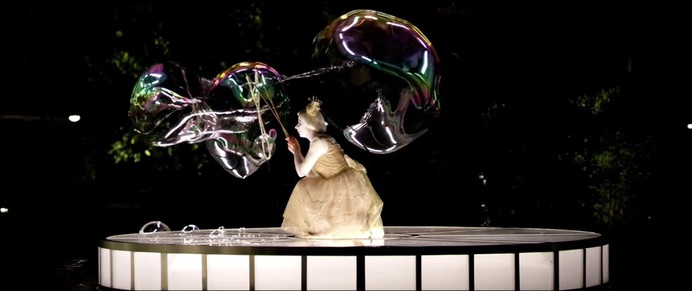
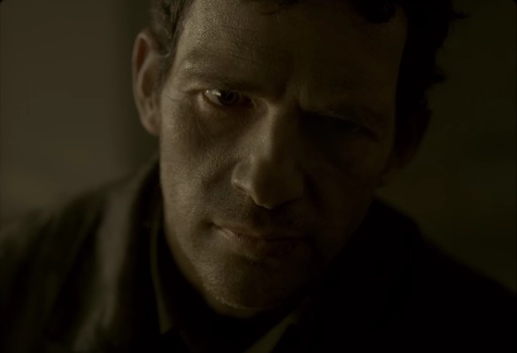
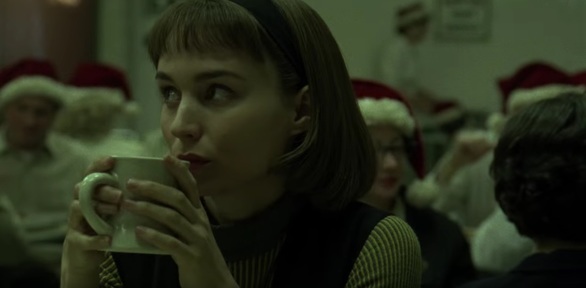
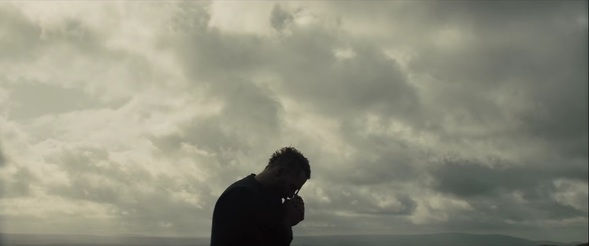
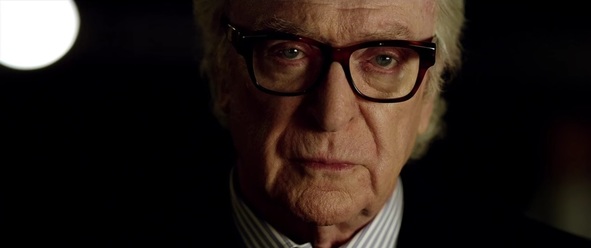
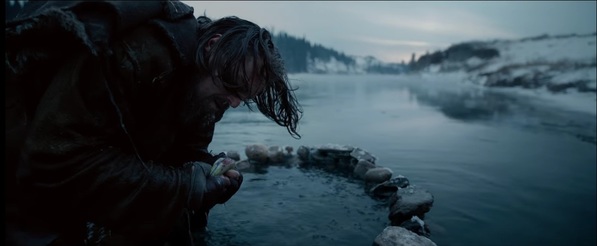
 RSS Feed
RSS Feed
